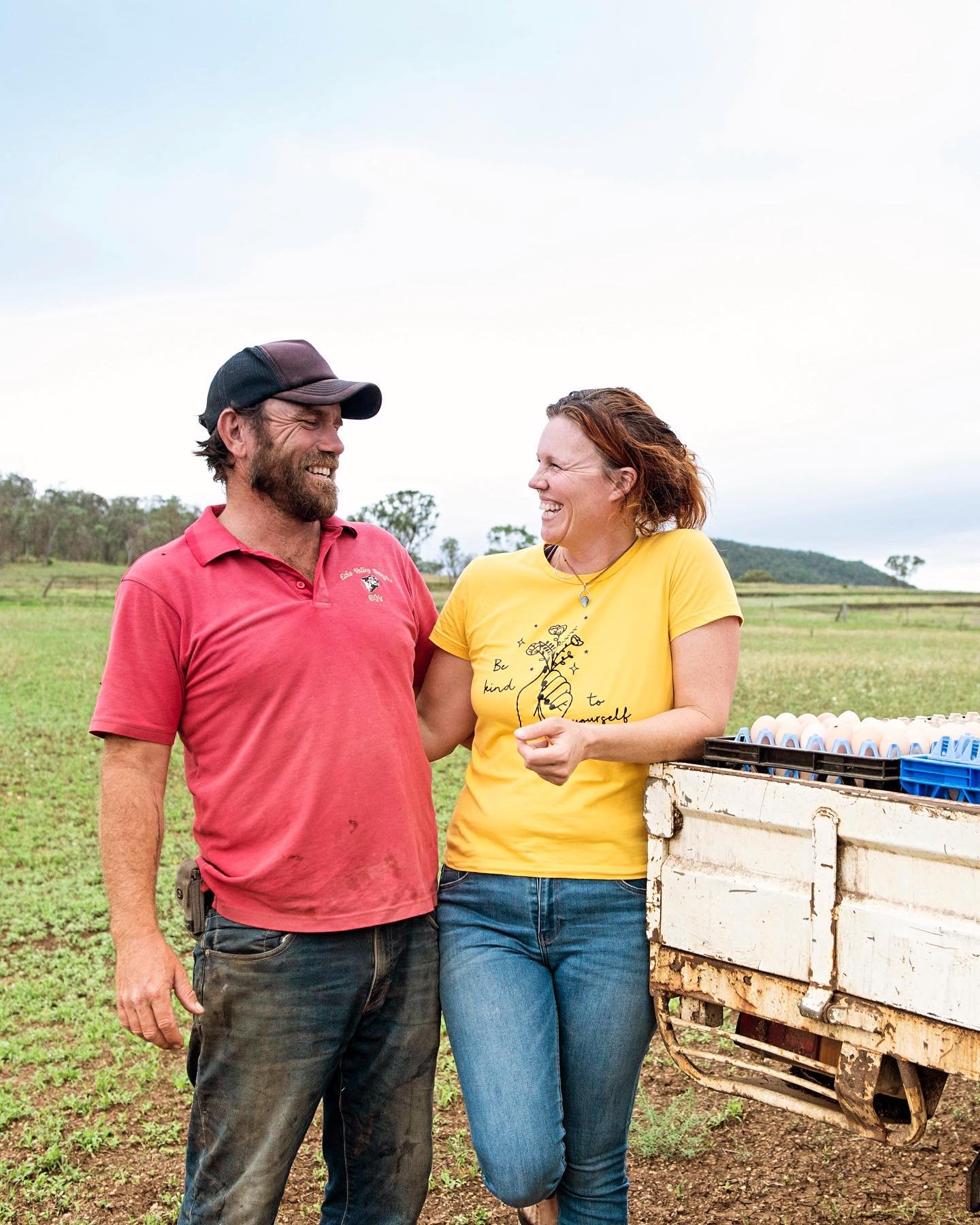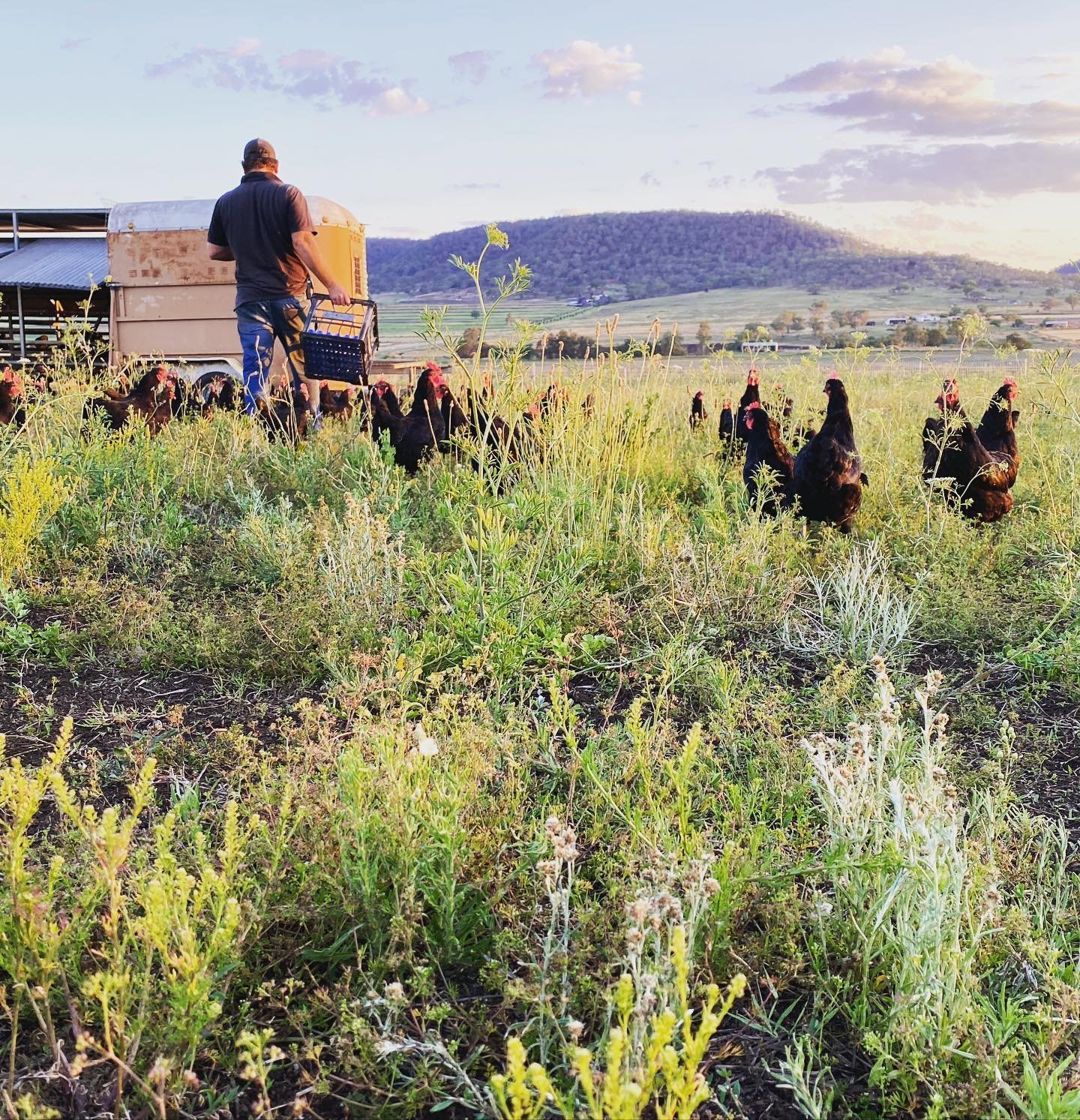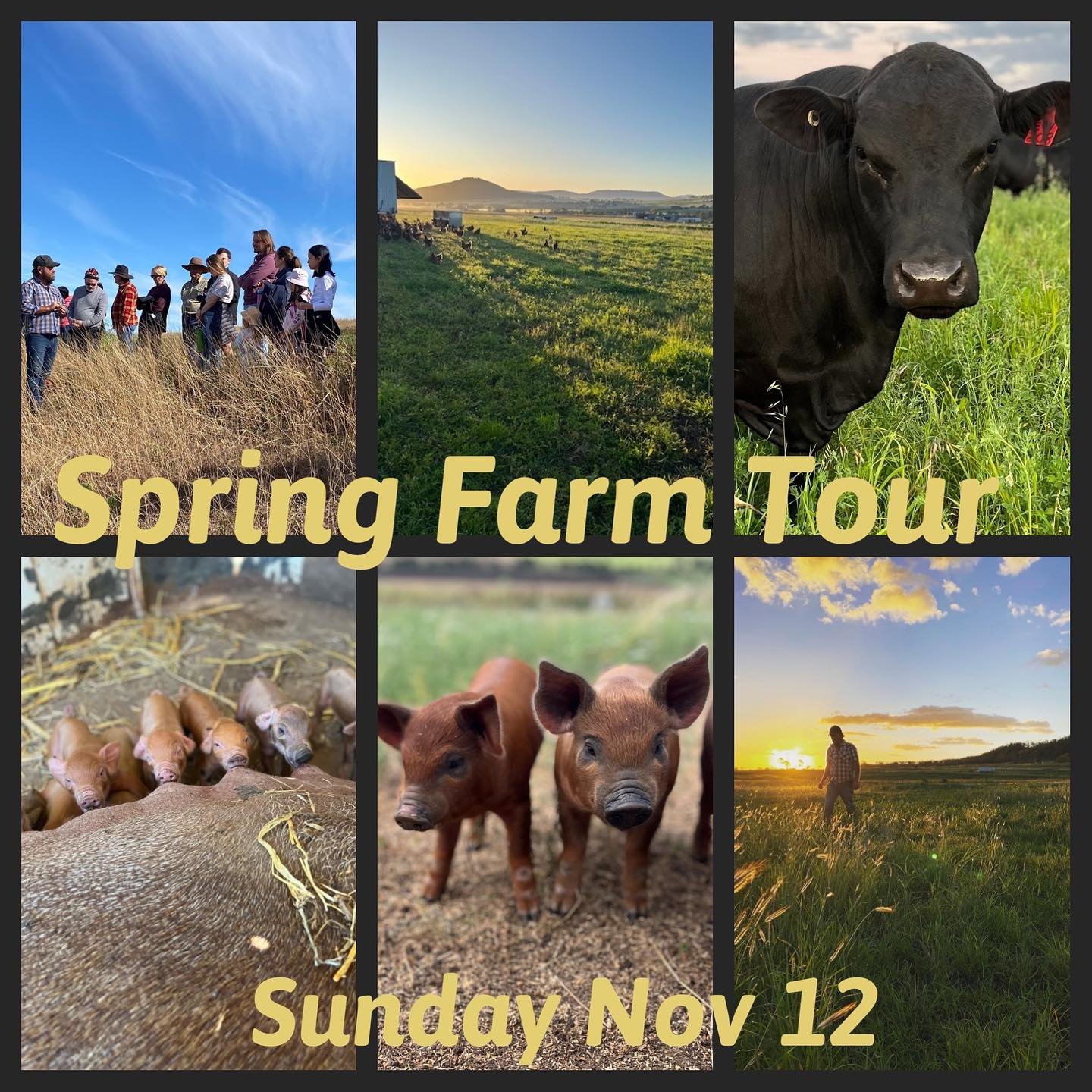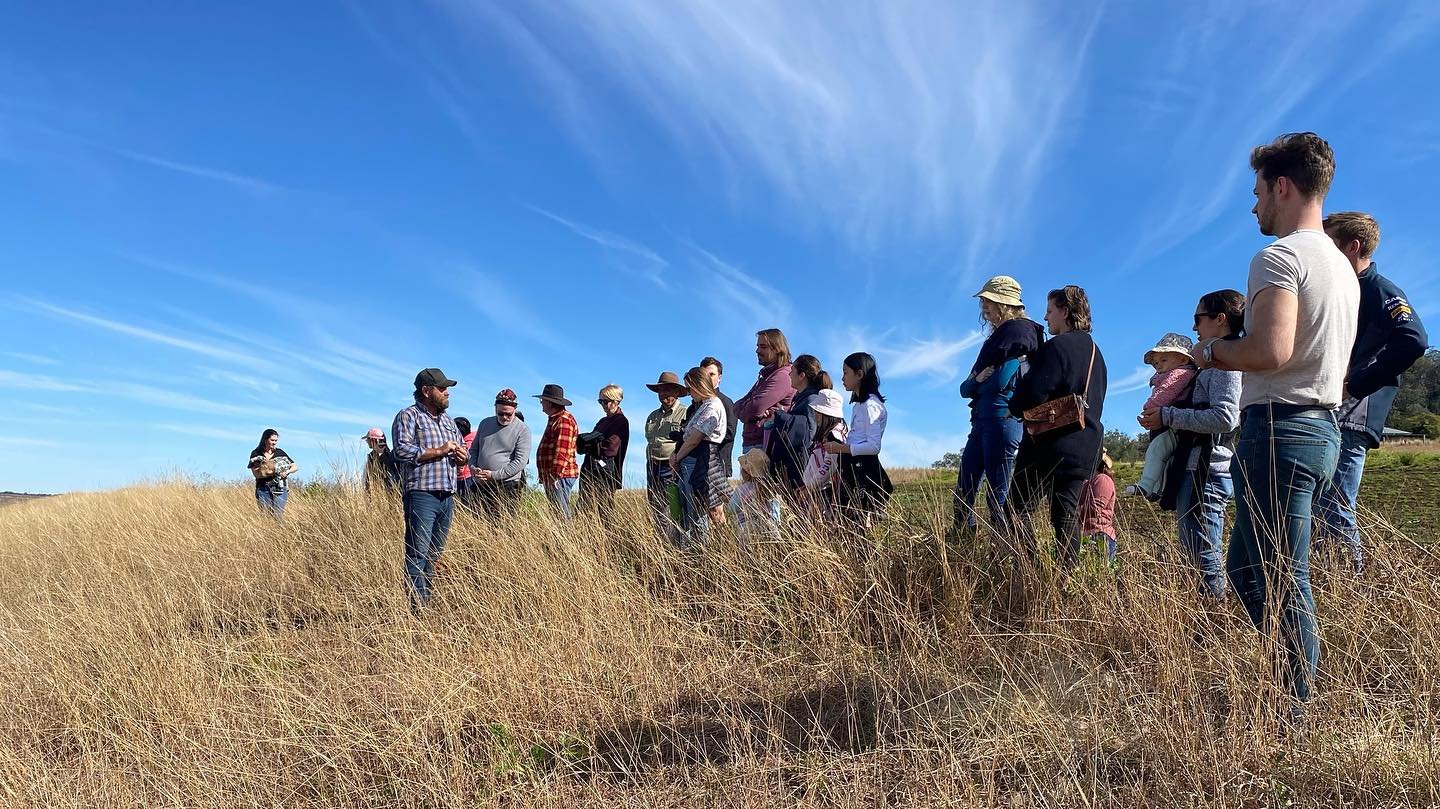Farming and agritourism as community
In an agritourism forum we attended last week, Randal Breen of Echo Valley Farm in the Goomburra Valley in southeast Queensland described an approach to farming and agritourism that we found so inspiring.
His approach is developing deep relationships and ethical decision making.
In terms of agritourism, Randal and his wife Juanita run seasonal farm events where people can
meet their animals (nomadic pastured cattle, pastured pigs and chickens, and dogs), understand the roles the animals play on the farm, and how they work together to create a holistic farming environment.
discover why and how the couple farm regeneratively to enhance the environment
learn about ethics in farming.
enjoy a buffet lunch prepared with food produced both on farm and by small producers nearby.
A holistic approach and ‘rusted on supporters’
Randal and Juanita have a 100-year vision for their farm, based on diversity in everything (animals, plants, ecosystems on the property, income streams, product distribution, and more), and on the ‘4 Goods’ – making decisions that are good for their animals, their soil and property, and themselves as farmers, resulting in outcomes that are good for everyone else – their customers and others.
In 10 years, they’ve experienced drought, fire, flood, disease, pandemic, and a cost of living crisis, and their 100 year plan for their helps them cope.
In part to support mental health (farmers have the highest suicide rate of any profession (as Randal says, “Suicide is a blight on our food production system”) and in part to create “rusted on supporters” (more on this soon), the couple focus on creating deep, rich, strong relationships and connections. Randal and Juanita use this approach deliberately – in their pre-farming life they were Community Development Officers for a metro Council.
Rusted on supporters are not just happy customers, but people so connected to the family’s story, the farm, and the farming approach that they are willing to go above and beyond to support them. For example, their supporters pay full price for their monthly Community Supported Agriculture (CSA) box of produce and are willing receive less produce during a drought (sharing risk as well as good times), and even transfer cash donations to the farm bank account “for hay”.
The CSA members (or repeat customers, loyalty program, or relationship-based distribution system) also receive a newsletter, an invitation to join a tree planting day on the farm twice a year to help regenerate the property, and an invitation to visit the farm seasonally to see the farm in different seasons and see its improvements over time.
An example of how this ‘deep relationship’ system works for the farm is the boning and packing room they have. The couple had reached an impasse with processing their animals in their negotiations with abattoirs and butchers. To overcome this barrier, they needed their own butcher – they needed to either buy one or build one.
They created a pitch, crowdfunded from those they had deep relationships with, and raised $100,000 to build a butchery on the farm. The business case stacked up enough that they could have secured financing from a bank, but Randal says, “We prefer to be indebted to those we feed than to a bank.”
This demonstrates the power of engaging with community: “They became our bank and took the risk. We used our community to grow our business.”
Randal reminded us that agritourism should not be adding another job to busy farmers, adding another straw to the load, so farmers become twice as busy and not better off. An agritourism offering should be fully integrated into the whole farming system. He finds adding people to the mix is rewarding and adds to farm joy, not farm jobs.
Tips for Councils
The couple’s Council’s planners’ attitude has been their key barrier to farm growth and development.
Councils should have a holistic vision for what they are trying to achieve that every department in Council strives to achieve. For example, if a Council had a vision to build a flourishing regional community, their planners’ attitude would be to find a way to help families and entrepreneurs grow their small businesses.
There should be a stepped approach to regulation. Currently the steps are 1. Up to 30 backyard hens; 2. Tens of thousands of hens in factory farms. This means a farm with 500 pastured hens has to fulfill all of the regulatory conditions that a factory farm has to. A different approach to adding more steps could be to have a different approval process for regenerative farms.
Families (small businesses) will stay where they can flourish. Local governments that support systems that attract people will develop flourishing communities.
Farming
Randal and Juanita run one of the few farms in their region where the family income comes 100% from the land.
Their approach is farming as community, not commodity.
The industrial food system has effectively removed people from the rural landscape – removed connection – and this is why agritourism exists. In the past, agritourism was called ‘spending weekends and school holidays on a relative’s farm’ (if you didn’t already live on a farm).
The couple practice holistic, diverse, regenerative farming with stacked, integrated, multispecies fodder cropping to heal soil and feed multispecies animals as pasture. They aim to heal the depleted soil they inherited when they bought the farm, as increased soil health supports increased human health.
Their pigs eat food waste which Randal calls ‘yield’, mainly from brewers.
Their CSA program began first by building relationships with weekly customers during 2.5 years of selling at farmers markets. When they launched the CSA program, they needed 50 customers to stop doing markets, and have built to 100.
The CSA boxes are delivered weekly to pick up points at a certain time. Customers come to pick up their box and for the 15 or 20 minutes they are there they share in community connections as everyone chats with each other - building a network of relationships.
All photos from Echo Valley Farms






